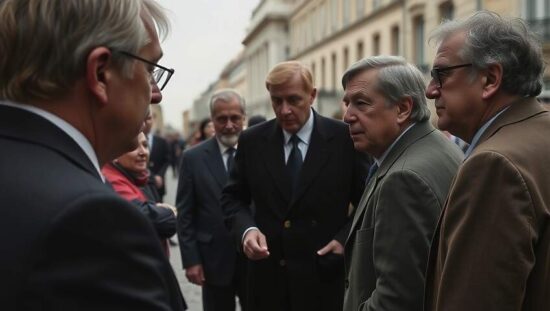The impending meeting between former U.S. President Donald Trump and Russian President Vladimir Putin in Budapest is raising serious questions about the adherence to international law and the potential for undermining the International Criminal Court (ICC). Jürgen Hardt, the foreign policy spokesperson for the CDU/CSU parliamentary group in the German Bundestag, has issued a stark warning regarding the potential for a significant affront to the established international order.
Hardt’s concerns center on Hungary’s legal obligations. As a signatory to the Rome Statute, the treaty establishing the ICC, Hungary is formally required to arrest Putin, against whom an international arrest warrant was issued in 2023. The warrant stems from accusations of war crimes, specifically concerning the illegal deportation of Ukrainian children to Russia, where they are purportedly subjected to forced assimilation and stripped of their identities.
The prospect of Putin attending the Budapest meeting without facing repercussions highlights a deeper challenge to international accountability. Hardt pointed out the logistical lengths already taken to facilitate Putin’s travel, noting that his previous meeting with Trump in Alaska was only possible because his flight path avoided traversing airspace of countries that are states parties to the Rome Statute.
While Hungary has initiated proceedings to withdraw from the ICC – a process not complete until June 2026 – its current legal and political posture presents a precarious situation. Hardt emphasized that the Hungarian government’s stance doesn’t reflect the broader consensus within the European Union, implying potential strains within the bloc.
The situation raises critical questions about the role of individual nations in upholding international legal frameworks. Allowing Putin to travel and meet without acknowledging the ICC warrant not only undermines the court’s authority but risks tacitly endorsing actions deemed to constitute grave war crimes. The meeting’s potential ramifications extend beyond the immediate diplomatic relationship, speaking to the broader principles of global justice and the accountability of powerful figures accused of egregious violations of international law.





